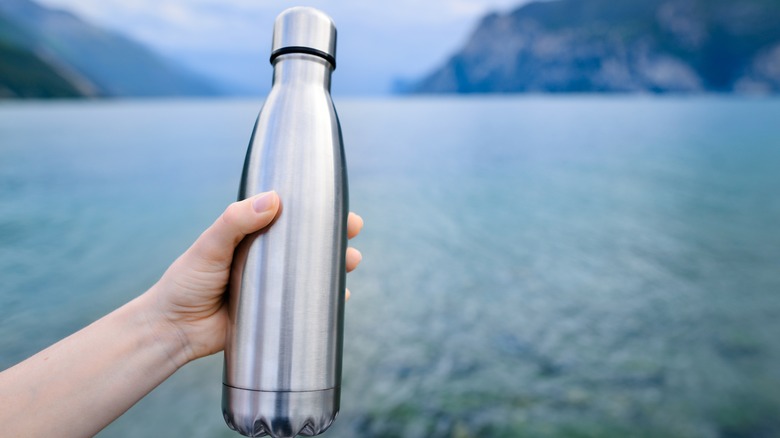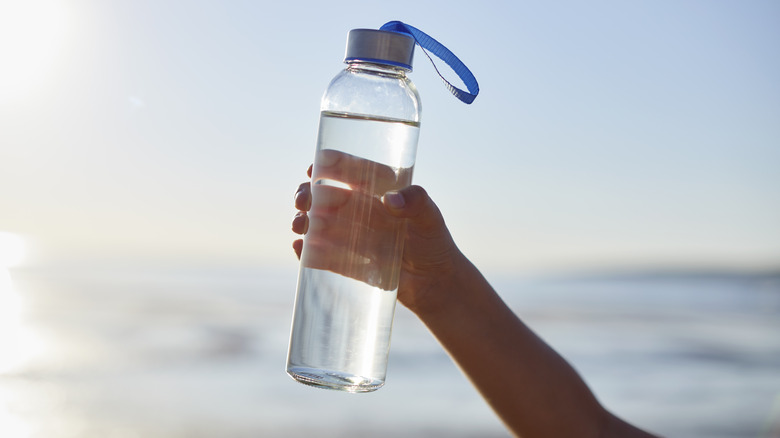The Downside Of Using Single-Walled Stainless Steel Water Bottles
While single-use plastic water bottles are handy and cheap, they're terrible for the environment. According to Statista, we threw away a whopping 400 million metric tons of plastic waste in 2021, and it might take more than 500 years for all that to break down. That's why many people are switching to a greener option: reusable water bottles. Instead of being used once and thrown away, these bottles can be used over and over again.
Among the most affordable and well-liked options on the market is the single-walled stainless steel bottle. These bottles are lightweight because they're made from just one sheet of metal, usually stainless steel (which also lends them great durability). With the added perks of being safe to use in the dishwasher, having no known negative health impacts, and being reusable many times over, it's not surprising that they have become so popular. But they aren't without a few drawbacks.
The main downside is that metal transfers heat very easily and their single-walled construction means that these bottles have no insulating ability whatsoever. So, if you intend to carry hot coffee, expect the bottle to become scorching hot when you pour it in and the coffee to already be cooling by the time you get to the office. Likewise, if you're carrying a cold drink, the bottle's outer metal will get quite chilly and the ice within will melt fast while it's in your backpack. That's why these bottles are great for use as literal water bottles, but they aren't well-suited for carrying much else.
Great alternatives to single-walled steel water bottles
Instead of going for the cheap single-walled bottles, we suggest getting double-walled, insulated ones. These are constructed from two layers of metal, with a vacuum seal sandwiched in between to insulate and keep your favorite drink at a consistent temperature throughout the day. The only notable downside, apart from the higher initial cost, is that you'll need to handwash them, as dishwashers can harm the vacuum seal and compromise their ability to insulate.
Glass bottles are also a great choice. Unlike plastic bottles, there are no harmful chemicals in a glass bottle, and it won't make your drink taste weird or smell funky, either. Plus, you can easily clean these reusable water bottles by putting them in the dishwasher. On the flip side, glass bottles can be quite heavy compared to plastic ones. They're more fragile, too, which makes them less than ideal as a water canteen if you're a sporty or outdoorsy person.
Lastly, consider aluminum water bottles. They're an excellent choice if you're seeking a lightweight option like plastic, but offer the added benefits of being highly reusable and environmentally friendly. Be cautious, though, as aluminum can interact with some liquids, potentially leaching metal into your drink. That's why they always come with a lining. Here's where the tricky part comes in: Some liners contain bisphenol A (BPA), which can be toxic. Check the bottle's packaging carefully and make sure that the one you buy is BPA-free!

